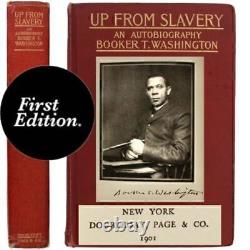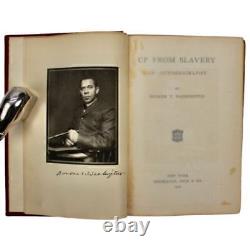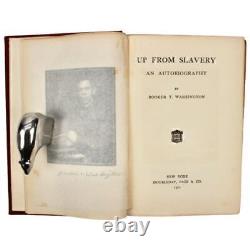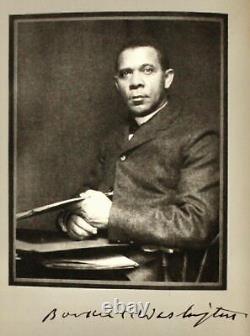
- Index
- Author
- Benson J Lossing (7)
- Benson J. Lossing (11)
- Bruce Catton (6)
- George Bancroft (7)
- Harper (8)
- J.t. Headley (6)
- John H. Thillman (6)
- Louisa May Alcott (38)
- Margaret Mitchell (6)
- Mixed Authors (46)
- Prof Allen E. Fowler (6)
- Rossiter Johnson (6)
- Samuel Butler (5)
- Shelby Foote (63)
- Thomas Mealey Harris (9)
- Time Life (14)
- Ulysses S. Grant (11)
- Unknown (24)
- Various (63)
- Various Authors (21)
- Other (1894)
- Binding
- Publisher
- Broadfoot (9)
- Bunce & Huntington (10)
- Charles L. Webster (9)
- Easton Press (106)
- Harper & Brothers (10)
- J H Moore & Company (6)
- Jones & Stanley (6)
- Kunz (5)
- L. Stebbins (10)
- Lange & Hillman (5)
- Lee And Shepard (5)
- Marvel Comics (9)
- Morningside (19)
- Random House (17)
- Sherman Publishing (8)
- The State Company (6)
- Time Life (10)
- Time Life Books (81)
- Time-life Books (10)
- Unknown (14)
- Other (1902)
- Region
- Subject
- American Civil War (2)
- American History (8)
- Americana (45)
- Art & Photography (3)
- Bible (14)
- Books On Collecting (3)
- Children's (2)
- Civil War (47)
- Civil War History (2)
- Congressional Record (3)
- Gettysburg Cemetery (2)
- Hardcover W / Jacket (2)
- History (298)
- Illustrated (6)
- Law & Government (11)
- Literature & Fiction (65)
- Military & War (692)
- Military History (3)
- Reference (10)
- Science & Medicine (7)
- Other (1032)
- Topic
- Agriculture (8)
- American (us) (19)
- American Civil War (5)
- American History (6)
- Bible (10)
- Books (7)
- Books, Civil War (30)
- Christianity, Bibles (71)
- Civil War (234)
- Civil War (1861-65) (906)
- Civil War, War (6)
- Classics (45)
- English Civil War (5)
- Historical (46)
- History (10)
- Literature (7)
- Military (21)
- Poetry (6)
- Religion (6)
- United States (20)
- Other (789)
Slavery Civil War Black Elite Booker T Washington First Edition 1901 Tuskegee HC















Published by New York: Doubleday, Page & Co, 1901. FIRST EDITION, FIRST PRINTING, FIRST ISSUE with 1901 date on title page, correct publisher imprint, and lacking mention of Washington's first book on title page. Very good hardcover, no dustjacket. Tight binding, solid spine, clean unmarked text, moderate wear and a few light spots to covers, index. Illustrated with tissue guarded frontispiece of author.
The autobiography of Booker T. The Modern Library listed the book at No. 3 on its list of the 100 best nonfiction books of the 20th century, and in 1999 it was also listed by the conservative Intercollegiate Review as one of the "50 Best Books of the Twentieth Century".
Booker Taliaferro Washington was an American educator, author, orator, and adviser to several presidents of the United States. Between 1890 and 1915, Washington was the dominant leader in the African-American community and of the contemporary black elite. Washington was from the last generation of black American leaders born into slavery and became the leading voice of the former slaves and their descendants. They were newly oppressed in the South by disenfranchisement and the Jim Crow discriminatory laws enacted in the post-Reconstruction Southern states in the late 19th and early 20th centuries. Washington was a key proponent of African-American businesses and one of the founders of the National Negro Business League. His base was the Tuskegee Institute, a normal school, later a historically black college in Tuskegee, Alabama, at which he served as principal. As lynchings in the South reached a peak in 1895, Washington gave a speech, known as the "Atlanta compromise", that brought him national fame.He called for black progress through education and entrepreneurship, rather than directly challenging Jim Crow segregation and the disenfranchisement of black voters in the South. Washington mobilized a nationwide coalition of middle-class blacks, church leaders, and white philanthropists and politicians, with a long-term goal of building the community's economic strength and pride by a focus on self-help and schooling. With his own contributions to the black community, Washington was a supporter of racial uplift, but, secretly, he also supported court challenges to segregation and to restrictions on voter registration. Washington had the ear of the powerful in the America of his day, including presidents. Because of his influential leadership, the timespan of his activity, from 1880 to 1915, has been called the Age of Booker T.
Nevertheless, opposition to Washington grew, as it became clear that his Atlanta compromise did not produce the promised improvement for most black Americans in the South. William Monroe Trotter and W. Du Bois, whom Bookerites perceived in an antebellum way as "northern blacks", found Washington too accommodationist and his industrial ("agricultural and mechanical") education inadequate. Washington fought vigorously against them and succeeded in his opposition to the Niagara Movement that they tried to found but could not prevent their formation of the NAACP, whose views became mainstream. Black activists in the North, led by Du Bois, at first supported the Atlanta compromise, but later disagreed and opted to set up the National Association for the Advancement of Colored People (NAACP) to work for political change. They tried with limited success to challenge Washington's political machine for leadership in the black community, but built wider networks among white allies in the North. [4] Decades after Washington's death in 1915, the civil rights movement of the 1950s took a more active and progressive approach, which was also based on new grassroots organizations based in the South, such as Congress of Racial Equality (CORE), the Student Nonviolent Coordinating Committee (SNCC) and Southern Christian Leadership Conference (SCLC). Washington's legacy has been controversial in the civil rights community. After his death in 1915, he came under heavy criticism for accommodationism to white supremacy, despite his claims that his long-term goal was to end the disenfranchisement of African Americans, the vast majority of whom still lived in the South. [5] However, a more neutral view has appeared since the late 20th century. As of 2010, most recent studies "defend and celebrate his accomplishments, legacy, and leadership". Slavery Civil War Black Elite Booker T Washington First Edition 1901 Tuskegee HC.
